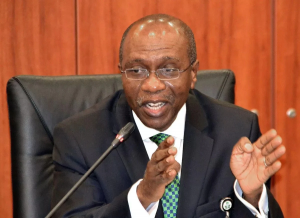By Cynthia Ezekwe
As an avenue to upscale financial inclusion in Nigeria, the Central Bank of Nigeria has launched SabiMoni, a financial literacy e-learning platform, to achieve the 95 per cent financial inclusion target by 2024.
The EFInA Access to finance report 2020 indicated that Nigeria has a high rate of financial exclusion when compared to its peers in sub-Saharan Africa. It also identified low awareness levels or low financial literacy levels as constituting a major barrier to financial inclusion in Nigeria.
Also,Rashida Monguno,a development CBN’s director, consumer protection department, disclosed that penetration of financial literacy in Nigeria is still low, with a current rate of 64.1 percent, attesting the low percentage to shortage of skilled financial literacy trainers and limited avenues or channels for financial education, noting that SabiMoni is a catalyst for greater financial inclusion and stability of the financial system.
Speaking at the launch of the platform recently in Abuja, Godwin Emefiele, governor of the CBN noted that the SabiMoni platform is designed to serve as a repository of information not only for learners but also for researchers in the most effective manner, adding that it would significantly impact the drive of financial inclusion, as many members of the Nigerian public would key into the platform.
According to Emefiele, research has shown that the absence of or low levels of financial literacy constitutes an impediment to financial inclusion, while stating that SabiMONI financial literacy e-learning platform will enable will facilitate the drive of digital financial literacy thereby boosting consumer confidence in the uptake and utilisation of digital financial services.
The CBN governor explained that the shortage of skilled and experienced persons to drive financial education remains a major hindrance, a challenge the bank intends to address with deliberate steps to upscale financial capability through financial education programmes.
“Financial inclusion is a strong lever for bridging income inequality, combating poverty and preserving social harmony and ultimately financial system stability,” he stated.
On her part, Aishah Ahmad, deputy governor, financial system stability,said financial literacy is a prerequisite for greater financial inclusion, which would lead to stability of the financial system and ultimately economic growth and development.
“It will also support efforts at enhancing financial inclusion through digitalization. It would serve as a channel for propagating digital financial literacy thereby ramping up adoption and usage of digital financial services,”she said.
The platform currently consists of 15 financial literacy modules and the learning methodology. Some of these modules include needs and wants, non – interest finance, fraud and scam, budgeting, investing. The modules are fashioned in a training of trainer model with the primary targets being the ‘intermediaries’ segment’. Upon completion of the course, learners would qualify as Certified Financial Literacy Trainers (CFLT).









